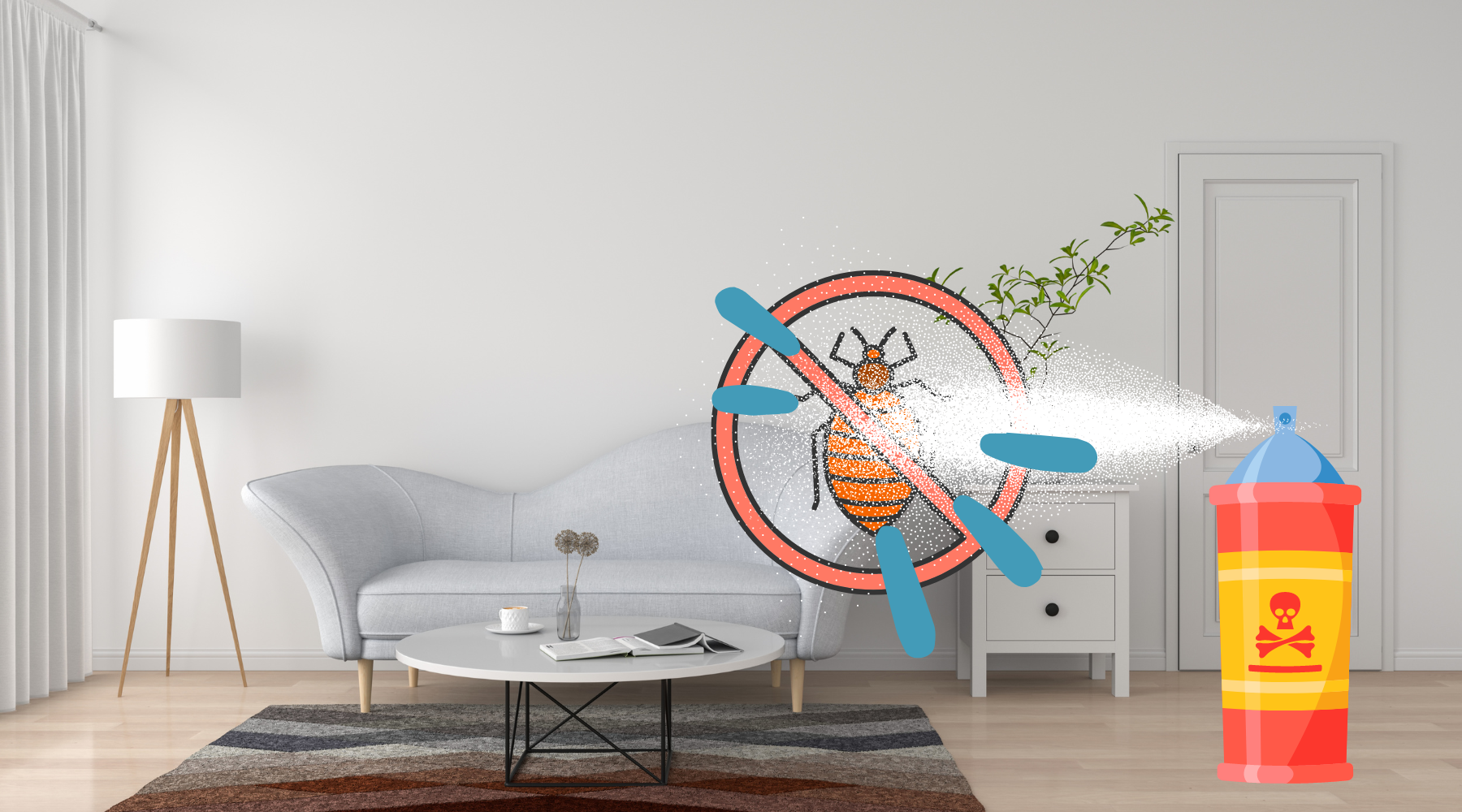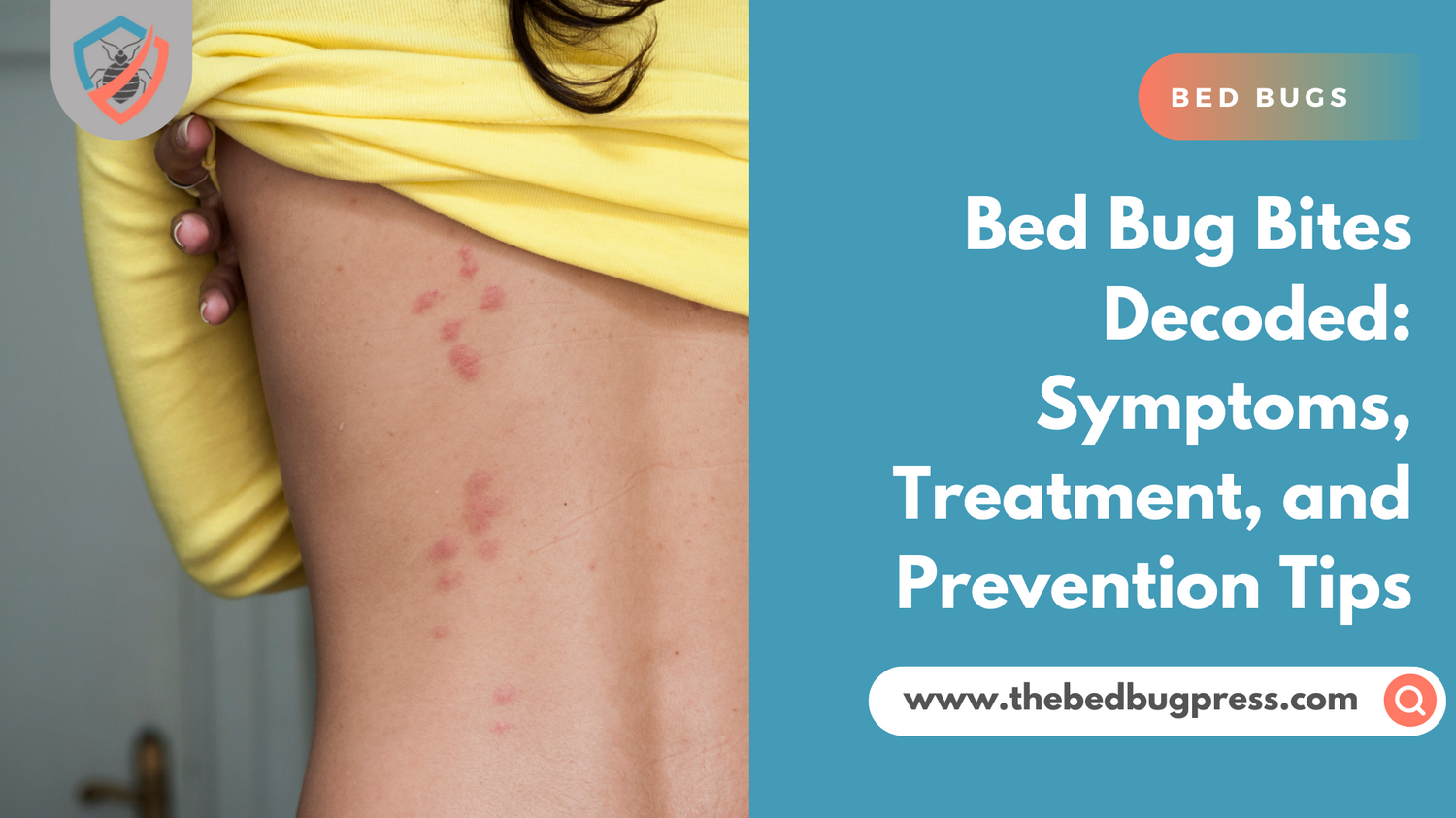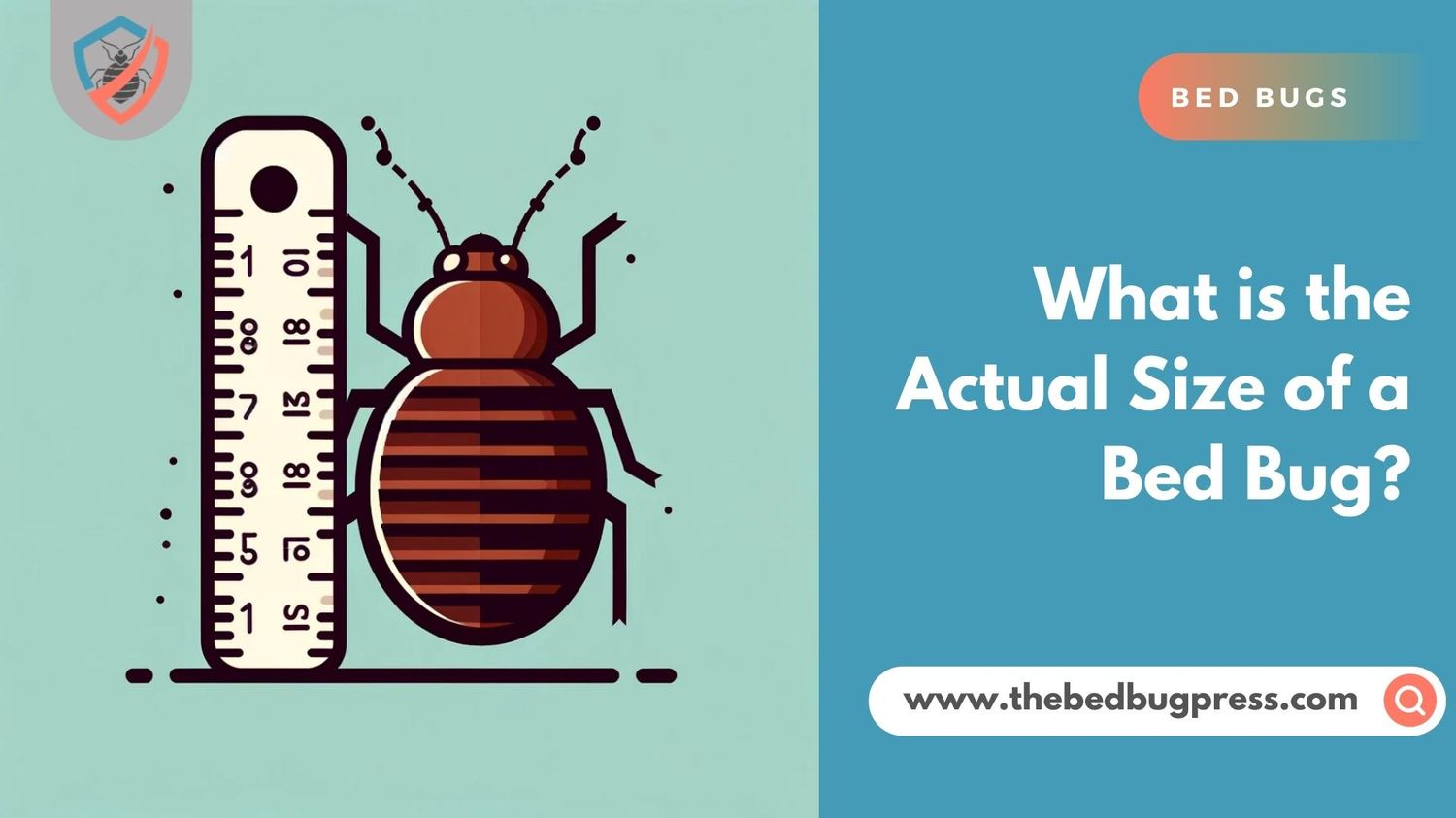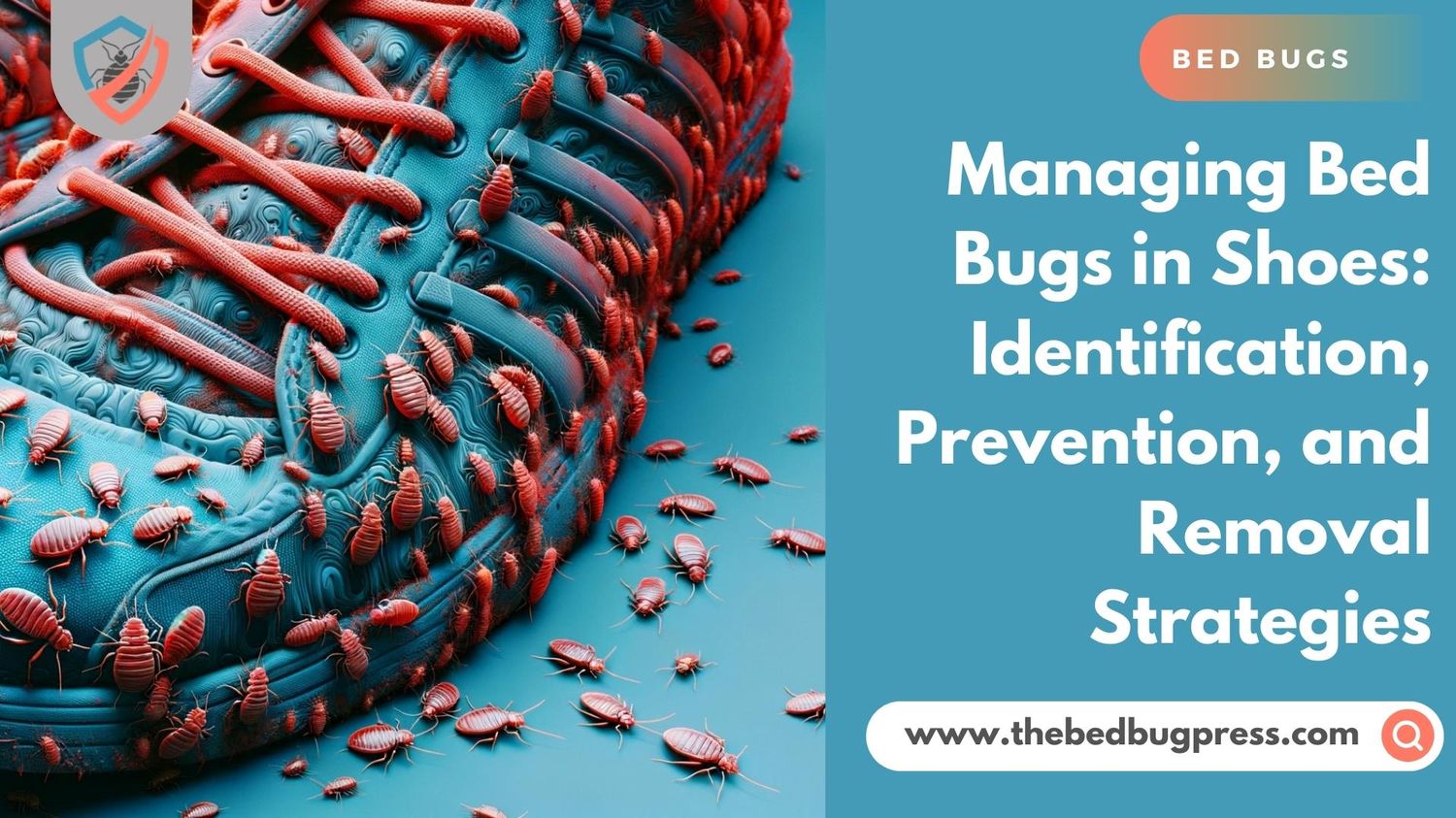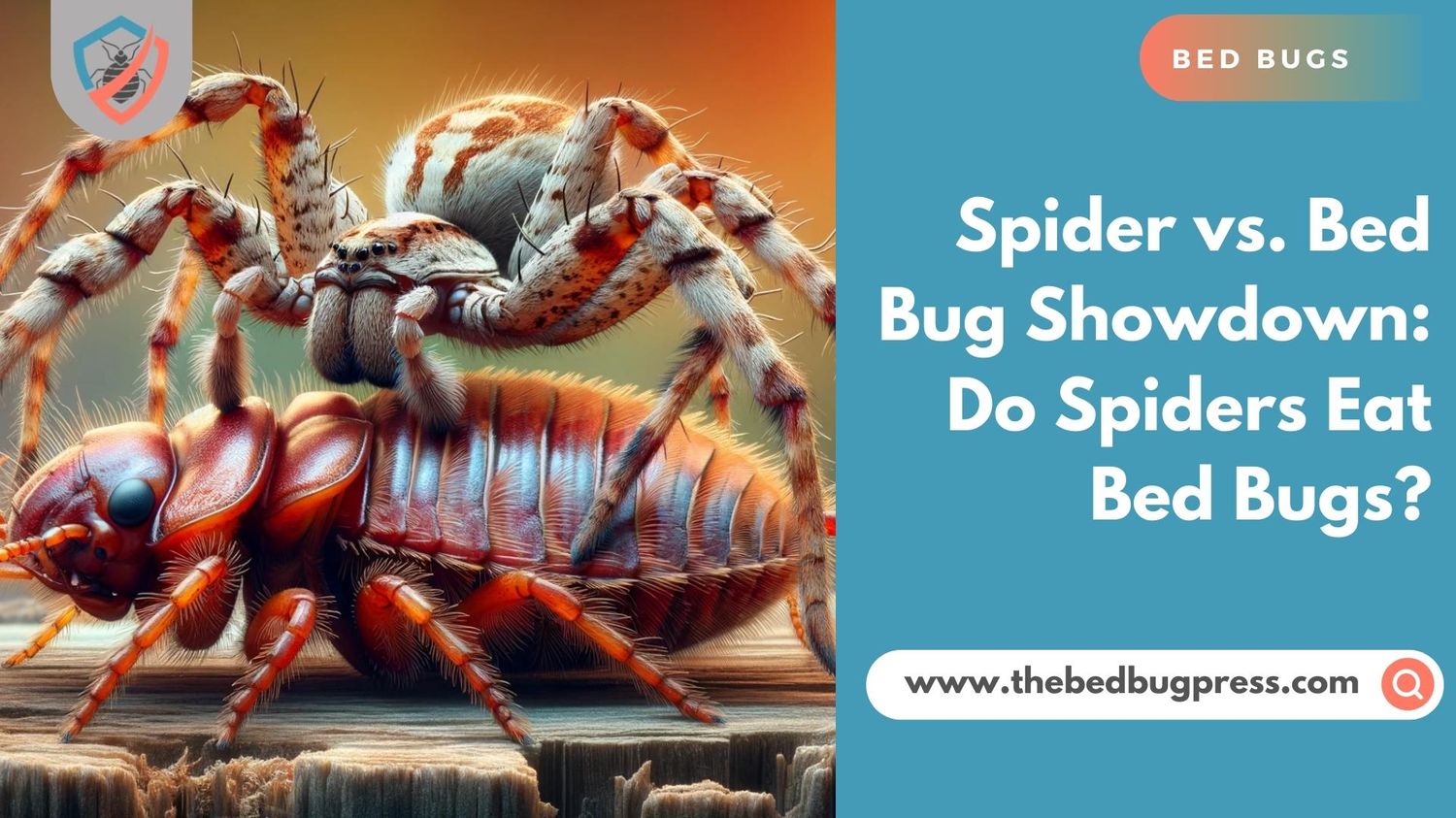Are you looking for an effective way to rid your home of annoying bed bugs? Look no further than natural residual spray! This powerful pest control product has been proven to be one of the best ways to control and eliminate bed bug infestations. In this article, we’ll look at how this type of spray works and why it’s such a reliable solution for getting rid of those little intruders. So, read on to learn more about this helpful treatment!
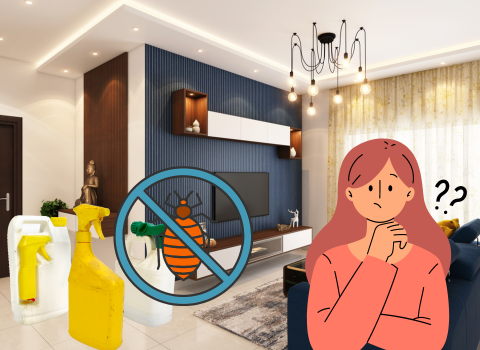
What Types of Residual Spray Treatment should you use?
When fighting a bed bug infestation, choosing the right name for a residual spray treatment is essential. Luckily, there are several options to consider that can help ensure maximum effectiveness and safety. Here are some of the most common names for residual spray treatment when treating bed bugs:
Pyrethrin-based Sprays
Pyrethroids are synthetic insecticides that mimic natural compounds found in chrysanthemums. They have long been used to kill bed bugs and other pests on contact.
Neem Oil Sprays
Neem oil is derived from the evergreen neem tree native to South Asia. It is an effective insecticide for killing adult bed bugs and bed bug eggs as well as other pests like fleas and ticks.
Permethrin Spray
Permethrin is a synthetic neurotoxin that acts on the nervous system of certain insects like bed bugs, killing them on contact. It also serves as a repellent to keep new invaders away.
Residual Insecticide Dusts
Insecticides such as diatomaceous earth or silica gel can be used as residual sprays to treat beds, carpets, furniture, curtains, and other areas where bed bugs may hide. Additionally, they form an invisible shield that prevents newly hatched larvae from entering the treated area.
When it comes to treating bed bug infestation, residual sprays are a powerful tool that can help eliminate the problem for good. From pyrethrin-based sprays to neem oil and permethrin, there are several effective options available. Remember, the key is to choose the right name for your residual spray treatments to achieve maximum effectiveness in getting rid of bed bugs fast.
Best Residual Bed Bug Spray
Finding the best residual bed bug spray for your home can be a daunting task. To ensure the most effective bed bug treatment, here are some helpful tips when looking for the best option:
- Choose a product that contains an active ingredient such as pyrethrin or permethrin to ensure maximum effectiveness against bed bugs and other pests.
- Consider the type of insecticide you will need. For example, neem oil sprays are effective at killing both adult bed bugs and bed bug eggs.
- Read up on any safety concerns associated with the several types of residual sprays before selecting a product. Make sure to follow all instructions for use and safety when applying any residual bed bug spray in your home.
- Check what kind of coverage area each product offers to make sure it fits your needs. Some products may cover a larger area than others, so consider this when making your selection.
- Look for reviews from other customers who have used the same product to get feedback on its efficacy and performance.
By following these tips, you can be sure to select the best residual bed bug spray for your situation and get rid of those annoying pests finally!
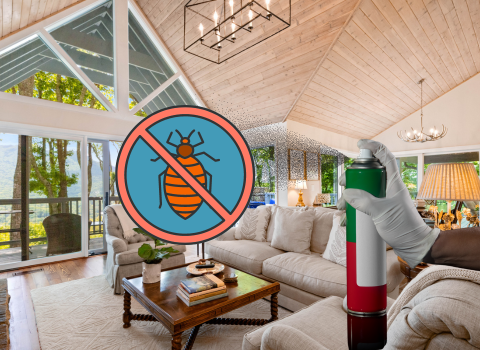
Professional Type of Residual Sprays for Bed Bugs
Finding the right professional type of residual sprays for bed bugs can be tricky, but it is important to ensure that your infestation is eradicated as quickly and effectively as possible. Here are some tips to help you find the right product for the job:
Research
Research several types of sprays to determine which one best meets your needs. For example, permethrin spray kills contact while neem oil spray eliminates both adult bed bugs and their eggs.
Safety Concerns
Consider any safety concerns associated with each type of spray before making a purchase. Make sure to follow any instructions for use carefully to maximize effectiveness without putting anyone or anything at unnecessary risk.
Coverage Area
Check the coverage area offered by various products to select one that will fit your situation best. Some sprays may cover more space than others, so make sure you choose one that covers enough area for maximum effectiveness.
Reviews
Read reviews from customers who have used the same product to get an idea of its efficacy and performance against bed bugs.
Ask a Professional
Ask a professional exterminator or entomologist for advice when selecting a residual spray if possible. This way, you can be sure that you’re selecting the right option for your bed bug infestation.
These tips will help you select the right professional type of residual bed bug spray and finally get rid of this annoying problem!
Best Natural Residual Bed Bug Spray
If you are looking for the best natural residual bed bug spray for your home, you need to be aware of a few key things to ensure optimal effectiveness. Check out these helpful tips when considering which product to purchase:
Familiarize Different Product Options
Familiarize yourself with several types of natural insecticides that can provide effective control against bed bugs, such as neem oil or diatomaceous earth. These products are safe for people and pets alike.
Estimate Coverage Area
Estimate the area each product will cover and make sure it fits your needs. Some sprays may offer more coverage than others, so this is a key factor to consider.
Evaluate Safety Risks
Make sure to evaluate any potential safety risks involved with using the selected product before use – always follow instructions!
Customer Reviews
Look through customer reviews online to get an idea of how effectively a certain spray has worked against bed bugs in the past.
Consult a Professional
Consider consulting with a professional exterminator or entomologist, if possible, to choose the best natural residual spray for your infestation.
Following these criteria will help you identify the right bed bug spray for your home so that you can finally kill bed bugs successfully!
Is It Faster to Get Rid of Bed Bugs Using Residual Sprays?
The onset of bed bug infestations can be traumatizing for anyone. Bed bugs feed on your blood and leave nasty bites and keep you up all night. When it comes to tackling a bed bug infestation, you need to consider some factors before choosing the right bed bug treatment. One of these factors is the speed of the bed bug treatment, and many have wondered if residual sprays are faster in dealing with bed bug infestations.
Residual sprays are a popular bed bug treatment among homeowners and pest control professionals for eliminating bed bugs. Not only do they provide an effective solution for an infestation, but they offer long-lasting protection as well. However, when it comes to speed, residual sprays might not be the fastest solution available.
Since residual sprays require time to dry, the application process takes longer, with a drying time of up to several hours, depending on the product. Additionally, bed bugs need to come into contact with the treated surfaces for the residual spray to kill them, which may take time, especially as bed bugs can conceal themselves in tiny spaces or crawl deep into fabrics. Overall, while residual sprays provide excellent long-term effects, they may not be the quickest method for dealing with bed bugs.
When it comes to bed bug infestations, you must act quickly to get rid of bed bugs fast. While residual sprays might not be the fastest treatment on the market, they certainly offer a comprehensive solution for eliminating bed bugs effectively. In any case, ensure to consult with a pest control professional to determine the most effective treatment plan based on your unique situation.
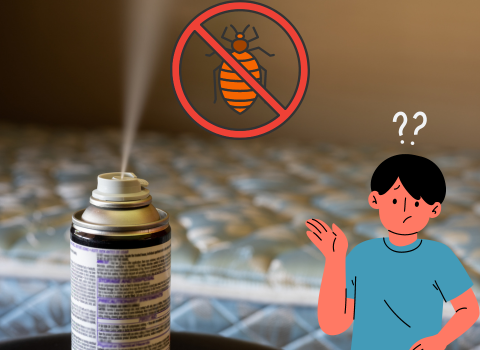
How Do Residual Sprays for Bed Bugs Work?
Residual sprays have become a popular solution for dealing with bed bug infestations, offering a long-lasting effect that can kill bed bugs for good. But how do residual sprays work, and what makes them so effective?
Residual sprays are typically made of synthetic pest control products that are formulated to stay active for several weeks or months after application. This means that as bed bugs come into contact with the sprayed surface, they will pick up the residual pesticide and be eliminated.
Most residual sprays use a combination of compounds that offer quick results, as well as a long-lasting effect. These include pyrethroids, neonicotinoids, and pyrroles, among others. These chemicals work by disrupting the nervous system in bed bugs, which leads to death.
What’s more, these residual sprays can be applied to various surfaces and materials, including mattresses, bed frames, and walls, making them ideal for treating bed bugs in an entire room or home.
The effectiveness of a residual spray depends on several factors, including the severity of the bed bug infestation and the product brand.
It’s important to note that residual sprays should only be used as directed on the product label, and the application should be managed by professionals. Moreover, there are health and safety considerations when using pesticide products.
If you decide to use a residual spray, it’s crucial to follow proper safety protocols, such as ventilating your space well and keeping pets and children away from treated areas. With proper use, residual sprays can be an effective treatment option for bed bug infestations.
What are the Active Ingredients of Most Residual Sprays?
Residual sprays are a common and effective treatment to eliminate bed bugs in your home or business. These sprays contain a combination of active ingredients that work together to kill bed bugs. The active ingredients in residual sprays fall into four main categories: pyrethroids, neonicotinoids, pyrroles, and insect growth regulators (IGRs).
Pyrethroids
Pyrethroids are synthetic versions of natural compounds found in chrysanthemums. They are a common ingredient in many residual sprays due to their fast-acting reputation for killing bed bugs on contact. Permethrin and bifenthrin are common types of pyrethroids that you may find in residual sprays. They work by disrupting the nervous system of bed bugs, which leads to paralysis and eventual death.
Remember that there are pyrethroid-resistant bed bugs that evolved, which makes treatment challenging especially if you have these types of bed bugs in your home. If in case you end up having pyrethroid-resistant bed bugs in your home, you might want to consider using other residual sprays with other active ingredients.
Neonicotinoids
Neonicotinoids work similarly to pyrethroids but have a different molecular structure. These compounds work by binding to specific receptors in the nervous system of bed bugs, leading to their death. One example of a neonicotinoid commonly found in residual sprays is clothianidin.
Pyrroles
Pyrroles, such as chlorfenapyr, are a newer kind of insecticide. Chlorfenapyr works by blocking the energy production in the cells of bed bugs, causing them to stop feeding and eventually die. Pyrroles are effective against bed bugs that have developed resistance to other insecticides, making them a popular ingredient in modern residual sprays.
Insect Growth Regulators
Insect growth regulators (IGRs), such as pyriproxyfen, disrupt the normal growth and development of bed bugs. By preventing the larvae from maturing into adults, IGRs break the bed bug life cycle, making it harder for bed bugs to reproduce and persist.
The active ingredients in residual sprays are specifically formulated to eradicate bed bugs promptly and efficiently. Pyrethroids, neonicotinoids, pyrroles, and IGRs work by disrupting the nervous system or life cycle of bed bugs, leading to their eventual elimination. Always follow product instructions for residual sprays carefully, and if in doubt, consult a professional before use.
How to Use Residual Sprays to Kill Bed Bugs Effectively
Residual sprays are a common and effective treatment for eliminating bed bugs in your home or business. To use residual sprays to kill bed bugs effectively, it’s important to always follow the product instructions carefully and consider safety considerations.
Preparation
Before using residual sprays, it is essential to adequately prepare the space where they will be used. This includes removing all loose items and vacuum-cleaning surfaces beforehand. Additionally, make sure that any pets or young children are safely outside of the treated room for at least 24 hours after application. Ensure there is adequate ventilation when using residual sprays by opening windows or turning on fans.
Application
Once the space has been prepared, apply the appropriate amount of residual spray according to the instructions on the product label, typically between 8-12 mL per square foot. Take care not to overload surfaces with residual spray as this can cause an unpleasant odor and lingering residue visible over time. It is important not to miss any spots when treating an entire room, as even small areas missed can lead to the recurrence of bed bug infestations.
Cleanup
Allow ample time for the treated area to dry fully before vacuuming again, dusting off excess powder residue, and putting items back in place as needed. Depending on the type of residual spray used, additional bed bug treatments may be necessary every few weeks or months to provide ongoing protection against bed bug infestations.
With the proper use of residual sprays, bed bugs can be eliminated finally! So don’t wait to act- utilize residual sprays to protect your home or business from bed bugs now!
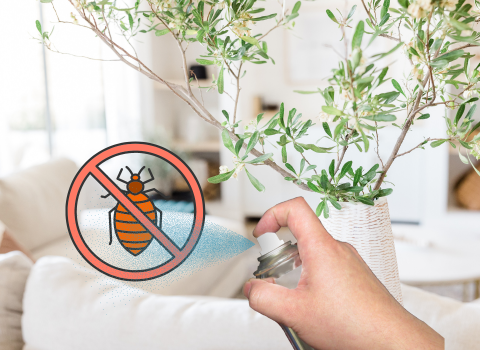
Are Residual Sprays Better than Contact Sprays?
While both contact and residual bed bug sprays are effective bed bug treatments for bed bugs, there are a few key differences between them.
Contact bed bug sprays work by killing bed bugs on contact, while residual bed bug sprays work by leaving an invisible residue that will last for several weeks. This means that with contact sprays you need to be careful to spray all areas of the space, while with residual sprays you can be sure of long-term protection from any stragglers. Residual sprays also provide better protection against future infestations as they can help create an ongoing barrier from any new bed bugs entering the treated area.
Residual sprays ensure better protection against future infestations and help create an ongoing barrier to prevent new bed bugs from entering the treated area. Contact sprays often require repeat applications to ensure all areas of the space have been treated.
Where Should You Apply Residual Sprays?
Residual bed bug sprays should be applied in all areas where bed bugs may be present, such as the following:
Baseboards:
Wipe down baseboards and cracks where bed bugs may be hiding.
Cracks and crevices:
Look for signs of bed bug activity in hidden spots like crevices, gaps, cracks, and wall voids.
Around beds and furniture:
Pay special attention to the areas surrounding beds, couches, chairs, mattresses, and box springs.
Under carpets:
Apply residual spray underneath carpets as bed bugs hide there.
Behind switch plates:
Check behind light switch plate covers as they are often a hiding spot for bed bugs.
It is important to read the product label carefully to determine which areas are safe for application. Additionally, it is important to apply the spray evenly and thoroughly for maximum effectiveness.
How Often Should You Spray to Get Rid of Bed Bugs?
Repeated applications of residual sprays are necessary for getting rid of bed bugs. The optimal frequency for using such sprays is every two weeks until the infestation has been completely eradicated. It is important to follow instructions when applying these sprays, as the residue will remain active and effective for a few weeks after application.
By targeting specific areas with residual sprays, it becomes easier to eliminate existing bed bug populations as well as prevent further infestations.
What is the Price Range of Residual Sprays for Bed Bugs?
The price range of residual sprays for bed bugs varies according to the brand and size of the product. These products can range from as little as $20 up to $60. Higher-priced products tend to come with more potent formulas that are more effective in getting rid of infestations. It also pays off to do research on the efficacy of certain brands before making a purchase.
How Long Does a Residual Bed Bug Spray Last?
The effectiveness of a residual bed bug spray can last for several weeks after application. Depending on the brand, some products protect for up to three months. It is important to read the instructions and follow the label directions to ensure optimal results. Reapplication may be necessary to maintain protection against bed bugs.
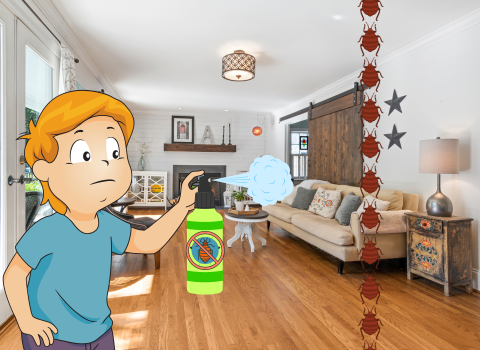
Reviews for the Best Residual Bed Bug Sprays
There are many varied brands of residual bed bug sprays available on the market. Some of the highest-rated products include:
Harris Bed Bug Killer
Harris Bed Bug Killer is long-lasting and protects for up to 16 weeks after a single application. It is odorless and does not stain fabrics or furniture.
Proof Effective Bed Bug Spray
Next to Harris Bed Bug Killer is this spray that contains natural ingredients that are safe for humans and pets. It has a pleasant scent and is suitable for both indoor and outdoor use.
Raid Max Bed Bug & Flea Killer
This powerful formula kills bed bugs, fleas, ticks, ants, cockroaches, spiders, and other pests. It also provides up to 12 weeks of protection against any future infestations.
Advanced Bed Bug Killer
This spray is formulated with natural ingredients that provide up to three months of protection from bed bugs. It is safe to use around kids and pets and has a pleasant scent.
EcoRaider Bed Bug Killer
This product is designed for use on a bed frame, on your mattresses, furniture, and other areas of the home that may be infested with bed bugs. It is non-toxic and offers up to 16 weeks of protection against future infestations.
Bedlam Plus Bed Bug Aerosol Spray
This aerosol spray kills adult bed bugs as well as their eggs. It offers long-lasting protection and can be used in both indoor and outdoor settings.
Bed Bug Patrol Bed Bug Killer Spray
This spray contains natural ingredients that are highly effective in killing bed bugs and other insects. It is safe to use around humans and pets and offers protection against future infestations.
BioAdvanced Bed Bug Killer
This product features a patented formula that kills bed bugs on contact while also providing up to 12 weeks of protection against any future infestations.
Eliminator Bed Bug & Mite Spray
This powerful spray provides up to 16 weeks of protection from bed bugs, mites, ticks, fleas, and other pests. It also has a pleasant citrus scent.
Ecoraider Bed Bug Killer Insecticide
This bed bug insecticide effectively kills adult bedbugs as well as their eggs. It is sugar based so it is non-toxic and safe for use around children and pets.
Bed bug infestations can be a nightmare and it is important to choose the right product for your needs. When selecting a product, make sure to consider the ingredients, efficacy, and safety of the product before making a purchase. No matter which option you choose, these products will provide you with the protection and peace of mind you need to effectively control any bed bug infestation.

